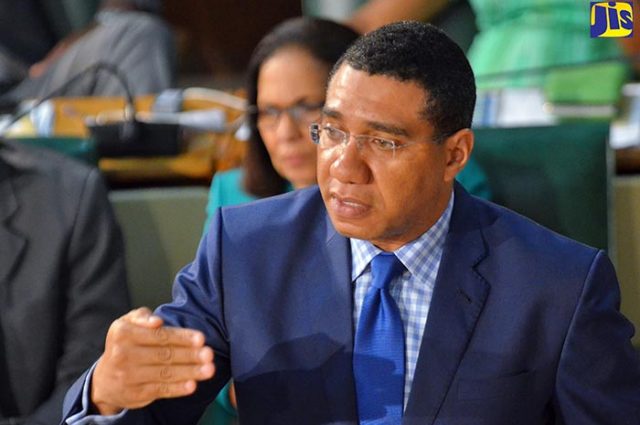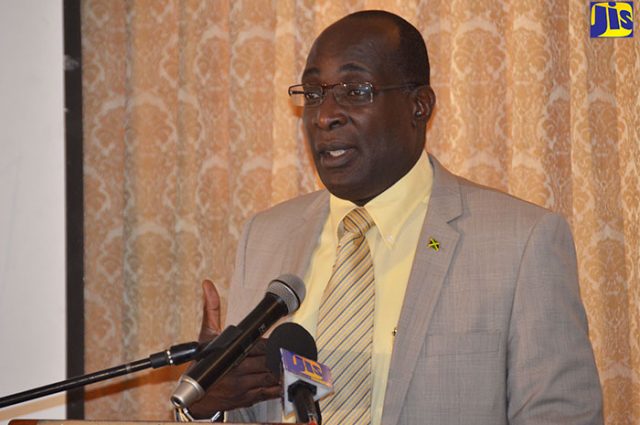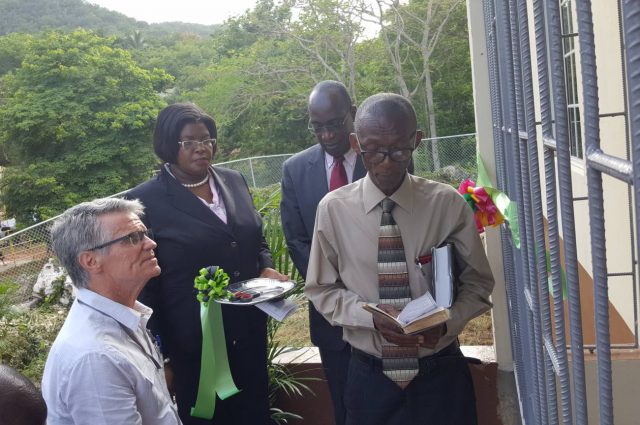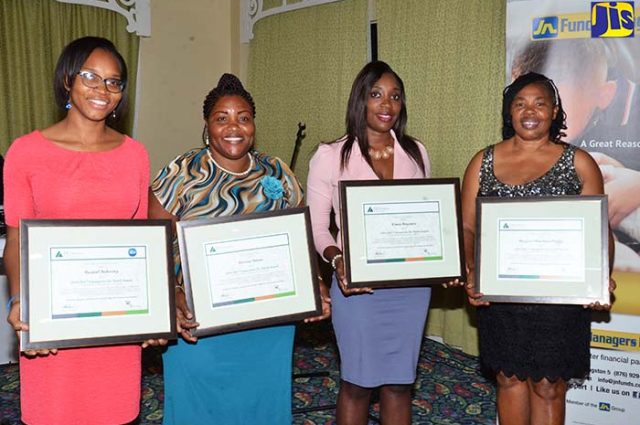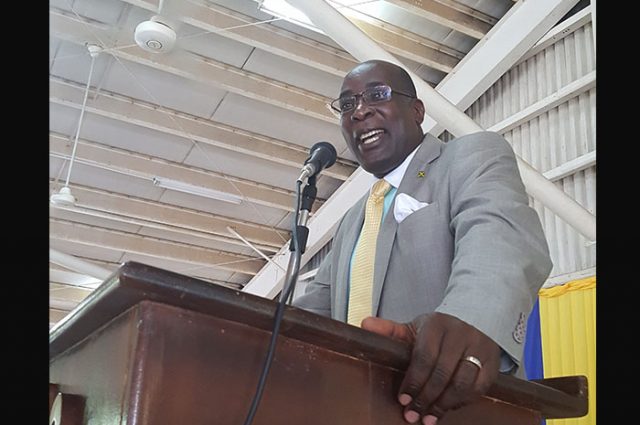JIS: The Mission House Methodist Basic School in East Rural St. Andrew is to receive assistance from employees of the Ministry of Foreign Affairs and Foreign Trade, in its quest to attain Early Childhood Commission (ECC) certification.
Members of the Jamaica Foreign Service Association (JaFSA) at the Ministry have committed to forging a long-term partnership with the school, which is affiliated with the Gordon Town Methodist Church and has already attained 79 per cent of the ECC’s certification standards.
The Ministry’s staff took the first step to cementing this partnership by carrying out renovation and beautification work at the school as their Labour Day project on May 23.
Members, along with Portfolio Minister, Senator the Hon. Kamina Johnson Smith, and ECC representatives, joined Member of Parliament, the Most Hon. Juliet Holness; members of the school’s administration; parents and other residents in giving the institution the welcome facelift.
The work entailed the refurbishing of the play area, ceiling and roof repairs, repainting, and general landscaping.
This is expected to propel the school closer to becoming certified, while further enhancing the teaching/learning experience for the 40 pupils and three teachers, headed by Principal, Kassan Scott.
The ECC Operating Standards emphasise the need for the creation of environments at schools that meet building, health and safety stipulations for children; the provision of adequate space to facilitate their development and that of the staff; the provision of safe child-friendly equipment and furnishings that promote the children’s optimal development; and safe indoor and outdoor environments for children, staff and visitors.
The Ministry’s staff members have indicated that there are further plans to address other features, which they hope to do in due course.
These include replacing the school’s roof, erecting a perimeter fence at the rear of the premises, and further enriching the teaching/learning experience by providing additional resources, such as books.
Senator Johnson Smith tells JIS News that there are also plans to paint a mural that is expected to significantly enhance the school’s environment.
Second Vice President of JaFSA, Alecia Lewis, who coordinated the project, says a school was chosen, because “we wanted to do something sustainable; and we think that education is an area that can have a long-term impact on people’s lives”.
Additionally, Ms. Lewis, who is the Acting Assistant to the Director for the Ministry’s Department of International Organisations, says the choice of a basic school, in particular, is in keeping with the Government’s focus on strengthening early-childhood education by ensuring that institutions’ operations are of the highest standards.
“That is the basis of our educational system, because, at the end of the day, if students don’t get the proper foundation between ages one and six, then it will be very difficult for them to learn as they go through the rest of the education system,” she argues.
Ms. Lewis says following consultations with the Ministry of Education, Youth and Information, Mission House Methodist Basic School was chosen.
Senator Johnson Smith, who points out that early-childhood education is “close to my heart,” tells JIS News that she gave the staff an undertaking to support their project of choice this year and, as such, endorsed the project when it was unveiled.
“One of the things we want to keep at the forefront of people’s minds is that even though we are the Foreign Affairs Ministry, we are very much connected to our communities (and committed) to making sure that our work reflects in improvements in the lives of Jamaicans,” the Minister says.
President of JaFSA, Denise Sealy, tells JIS News that stakeholder support for activities on Labour Day was very good, as in addition to the Ministry’s staff in Jamaica, there were inputs from the country’s overseas Missions that enabled the acquisition of the materials used.
Ms. Sealy, who is the Assistant Director in the Ministry’s Economic Affairs Department, assures that the activities on Labour Day were “the start of what is to come”.
For her part, Mrs. Holness praised the Ministry staff for their initiative, noting that it is “very encouraging when persons decide that they are going to select a project…and that’s what Labour Day is about”.
“It is not (solely the responsibility of) the Government or the Member of Parliament or the Councillor to choose. The community must also decide what is important and that they are willing to give of their time and input. It should be greatly appreciated when you get a job done in a community where the people have inputted their labour and love,” she adds.
Principal Scott tells JIS News that she was “ecstatic” when advised that her school would benefit from the benevolence of the Ministry’s staff.
“I am so happy. They could have chosen another school by the mere fact that we are in the rural area of St. Andrew. We all appreciate the fact that they chose our school to do this project,” she adds.
Ms. Scott, who has been Principal since 2004, is optimistic that the partnership with the Ministry will go a far way in assisting the school’s quest to attain ECC certification.
“We continue to work with the ECC to see how best we can improve the school’s infrastructure and teaching and learning environment, so that we are in alignment with the standards, rules and regulations of the Commission,” she says.
School Chairperson, Carmen Bogle, who notes that the institution has been in operation since 1951, tells JIS News that she, too, is pleased with the support that has been extended, adding that the entire community “is very appreciative of what is happening here”.
ECC Inspector, Karlene Jackson Jones, who also assisted in the project, tells JIS News that she is pleased with the progress of the school’s upgrading work. “They are pretty close to becoming certified,” she said.
Mrs. Jackson Jones advises that a follow-up inspection and assessment will be conducted as soon as installation of the outstanding fixtures at the school is completed, adding that once all the requirements are met, they will become ECC-certified.
For parent, Simone Edwards, the Labour Day activity and the long-term partnership by the Ministry “are well needed”.
“The school has excellent staff and they are doing a great job, especially the Principal, who goes the extra mile to get projects like these done at the school… and the community greatly appreciates this,” Ms. Edwards tells JIS News.
CAPTION: Staff members of the Ministry of Foreign Affairs and Foreign Trade paint playground equipment at the Mission House Methodist Basic School in Gordon Town, East Rural St. Andrew, on Labour Day, May 23.


